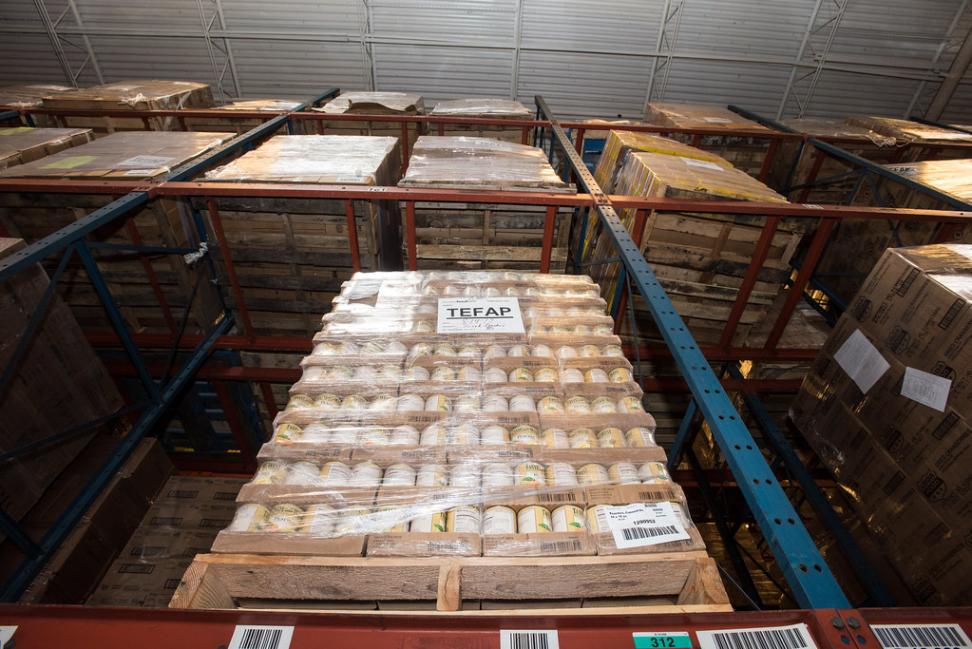The frozen foods industry is a dynamic and growing sector facing increasing consumer demand. With this surge in popularity comes heightened scrutiny from regulatory bodies. Ensuring regulatory compliance in frozen foods distribution is a legal necessity and a commitment to maintaining the highest standards of food safety and quality. The crux lies in adhering to strict food safety regulations and industry standards. These guidelines are pivotal in safeguarding the integrity of the supply chain, from production to the point of sale.
This article looks into the significance of regulatory compliance, covering essential topics like food safety regulations, labeling requirements, traceability, and quality control measures. It aims to provide comprehensive guidance to frozen foods distributors, enabling them to navigate the complexities of compliance with confidence and efficiency.
Importance of Regulatory Compliance
In frozen foods distribution, regulatory compliance is not just a matter of following rules—it’s a cornerstone of consumer safety and business integrity. Adhering to regulatory requirements is essential for protecting public health and ensuring food products are stored, handled, and transported under conditions that prevent spoilage and contamination. The importance of this compliance extends beyond food safety; it’s also about maintaining consumer trust. Consumers rely on distributors to provide products that are tasty and safe to eat.
The consequences of non-compliance can be severe. Companies face legal repercussions, including hefty fines and, in extreme cases, criminal charges. Financially, non-compliance costs can be substantial, including lost sales, product recalls, and damaged brand reputation. In some instances, non-compliance can lead to business closure.
However, it’s crucial to understand that regulatory compliance in frozen foods distribution isn’t solely about avoiding negative outcomes. It represents a commitment to quality and safety. By complying with regulations, distributors demonstrate their dedication to upholding high standards in every aspect of their operation. This commitment often translates into higher customer satisfaction and loyalty, setting a business apart in a competitive market.
Regulatory compliance is a multifaceted aspect of the frozen foods distribution business. It’s about aligning operations with legal requirements, ensuring public safety, and building a reputable brand.
Overview of Food Safety Regulations
Food safety regulations are a vital component in the frozen foods industry, setting the standard for every aspect of production and distribution. Key regulatory bodies like the Food and Drug Administration (FDA) and the United States Department of Agriculture (USDA) have established comprehensive guidelines to ensure the safety and quality of frozen foods. These regulations cover various facets:
- Temperature Control: Maintaining the correct temperature is critical in preventing bacterial growth and ensuring the safety of frozen foods. The FDA mandates that frozen food be kept at or below 0°F (-18°C).
- Contamination Prevention: Regulations outline standards for preventing cross-contamination, which can occur during processing, storage, or transportation. This includes using clean and sanitized equipment, proper packaging, and segregating different foods.
- Storage Requirements: Specific guidelines exist for the proper storage of frozen foods. These include designing and maintaining storage facilities to prevent temperature fluctuations and contamination.
- Handling and Transportation: The FDA and USDA provide guidelines on safely handling and transporting frozen foods. This includes using appropriate vehicles and storage containers, maintaining temperature controls, and ensuring sanitary conditions during transit.
Adherence to these regulations is a legal requirement and a best practice to ensure the highest food safety standards. Distributors must be vigilant in applying these regulations in their operations to avoid non-compliance risks.
Labeling Requirements and Traceability
Labeling and traceability are critical to the frozen foods industry’s regulatory compliance. They play a significant role in informing consumers and ensuring the safety of the food supply chain.
- Labeling Requirements: The FDA requires specific labeling on frozen food products, which includes:
- Nutritional information.
- Expiration dates.
- Storage instructions.
- Ingredients and allergen information.
- Proper labeling ensures that consumers are well-informed about the products they purchase and consume.
- Traceability: Traceability systems are crucial in tracking a food product’s journey through the supply chain. This includes:
- Recording the origins of each ingredient.
- Tracking the processing, storage, and transportation of products.
- Implementing systems to quickly trace and recall products if needed.
- Traceability aids in ensuring food safety, managing recalls efficiently, and maintaining consumer trust.
Implementing robust labeling and traceability systems helps comply with regulations and enhances the distribution process’s transparency and accountability. These measures are instrumental in building consumer confidence and ensuring the integrity of the food supply chain.
Quality Control Measures
Quality control is a cornerstone in the frozen foods industry, ensuring that products meet the highest standards of safety and quality. Effective quality control measures are crucial for maintaining compliance with food safety regulations and industry standards. These measures often include:
- Regular Audits: Conducting regular audits of facilities and processes ensures compliance with regulatory standards. These audits can help identify potential areas of improvement and prevent non-compliance issues.
- Employee Training: Continuous training of employees is essential. This includes education on proper handling and storage of frozen foods, understanding of regulatory requirements, and training in emergency procedures like recall protocols.
- Hazard Analysis and Critical Control Points (HACCP) Plans: Implementing HACCP plans is vital. These plans involve identifying potential hazards in the production process and establishing critical control points to prevent, eliminate, or reduce these hazards to safe levels.
- Technology in Quality Control: The use of advanced technology, such as automated temperature monitoring systems, can greatly enhance the efficacy of quality control measures. These technologies help maintain the cold chain’s integrity and ensure product quality throughout the distribution process.
By incorporating these quality control measures, frozen food distributors can comply with regulatory standards and enhance their operational efficiency and product reliability. These measures are integral to building a reputation for quality and safety in the competitive frozen foods market.
Ensuring Compliance: Strategies for Distributors
For frozen food distributors, ensuring compliance with food safety regulations and industry standards is a multifaceted challenge that demands a proactive and comprehensive approach. Adherence to these standards is not only crucial for legal compliance but also for maintaining the trust and safety of consumers. Here are some expanded strategies for distributors:
Staying Updated With Regulatory Changes
The regulatory landscape in the food industry is constantly evolving. Distributors must stay informed about the latest developments in regulations and industry standards. This can be achieved by:
- Subscribing to industry newsletters and regulatory updates.
- Attending seminars and workshops focused on food safety and regulation.
- Engaging with industry associations and regulatory bodies for insights and guidance.
- Consulting with legal experts specializing in food industry regulations.
Investing in Reliable Logistics and Storage Solutions
Implementing advanced and compliant storage and transportation facilities is vital for maintaining the integrity of frozen foods. This involves:
- Investing in state-of-the-art temperature-controlled warehouses and transportation vehicles.
- Regular maintenance and calibration of refrigeration systems to ensure consistent performance.
- Using tracking technology to monitor the temperature and condition of products throughout the supply chain.
- Conducting regular inspections and audits of storage and transportation facilities to ensure they meet regulatory standards.
Regular Training Programs
Continuously educating staff on the latest food safety practices and compliance procedures is crucial. This includes:
- Organizing ongoing training programs covering new regulations, safety protocols, and internal compliance procedures.
- Encouraging certifications in food safety management for relevant team members.
- Creating an environment where learning and compliance are valued and rewarded.
- Implementing regular assessments to gauge the effectiveness of training programs.
Building a Culture of Compliance:
Establishing a culture where compliance is integral at all organizational levels is essential. This can be fostered by:
- Leadership demonstrates a commitment to compliance and setting a positive example.
- Developing clear, accessible policies and procedures for all aspects of compliance.
- Encouraging open communication and feedback regarding compliance-related issues.
- Recognizing and rewarding compliance and proactive problem-solving in the workforce.
By implementing these strategies, frozen food distributors can effectively navigate the complexities of regulatory compliance. This not only ensures adherence to legal requirements but also reinforces the commitment to quality and safety, which is paramount in sustaining and growing their business in a competitive market.
Conclusion
Navigating regulatory compliance in the frozen foods distribution industry is an intricate yet essential part of maintaining high food safety and quality standards. Adherence to food safety regulations and industry standards is not just a legal obligation but a commitment to excellence and consumer trust. By implementing rigorous quality control measures, staying abreast of regulatory changes, and fostering a culture of compliance, distributors can ensure the safety and integrity of their products. This commitment safeguards public health and enhances business reputation and longevity in a competitive market.
At Food Shipping Experts, we understand the complexities of regulatory compliance in frozen foods distribution. Our team of specialists is committed to providing top-notch logistics solutions that meet the highest safety and efficiency standards. Whether you need guidance on the latest food safety regulations, innovative storage solutions, or reliable transportation, we have the expertise to support your business needs.
Contact Food Shipping Experts today to learn how we can help you navigate the regulatory landscape and ensure the highest quality in frozen foods distribution. Let us be your partner in achieving excellence in compliance and beyond.



